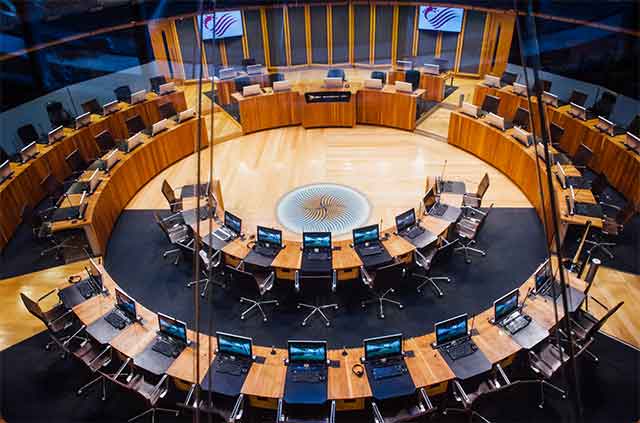THE Welsh Government has been urged to act to ensure ambulance crews can respond to major incidents such as terror attacks.
It follows a stark warning recently issued by senior Welsh Ambulance Service officials that their ability to reach serious incidents could be hindered by hospital handover delays.
A report to members of the NHS trust’s board published last month highlighted the risk of “catastrophic harm” to members of the public if crews are tied up outside emergency departments.
Concerns were raised after the service carried out a mass-casualty simulation exercise, which found it would have failed to provide an adequate response in three out of four scenarios.
The tests were conducted in the wake of the public inquiry into the Manchester Arena bombing, which identified a catalogue of failings by emergency services in the aftermath of the attack.
The issue of handover delays and their impact on the Welsh Ambulance Service’s ability to respond to major incidents was raised with ministers in the Senedd on Wednesday (June 5, 2024).
Speaking in the chamber, Altaf Hussain, Conservative MS for South West Wales said: “Last week, the Welsh Ambulance Services University NHS Trust warned that handover delays, which are in part due to a lack of social care staff, will impact the service’s ability to respond to major incidents, including terrorist attacks.
“Whatever the problem with our NHS, we could always rely upon it in a national emergency, but now, even that is not certain.
“What steps are you taking to eliminate handover delays and allow ambulance crews to respond to major incidents?”
In its report, the ambulance service questioned the effectiveness of procedures in place to release crews from outside hospitals during major incidents.
Members of the Senedd’s health committee were told last month that some ambulance crews are often only able to see one patient per shift.
Ther service’s chief executive Jason Killens said up to 30,000 hours of emergency response time are lost every month in Wales due to long waits in transferring people to hospital.
He said it was harming patient safety, with average handover times standing at more than two hours, compared to the target of 15 minutes.
The Welsh Government said it expected health boards to reduce handover delays “as a priority” in response to the concerns.
Replying to Mr Hussain, Cabinet Secretary for Health and Social Care Eluned Morgan said ambulance staff numbers had increased, but system blockages still remained.
The minister said: “When it comes to the ambulance service, we have 13 per cent more people than we had three years ago, so significant additional numbers.
“You’re quite right that, when it comes to handover delays, there’s a real issue, and it is an issue that we are constantly going at.
“It is about where the responsibilities are within those health boards, who need to move people on, but also local government.
“That constant conversation we have with them, being able to really identify where the problem is, what is the blockage, and whose responsibility is the blockage, is absolutely critical.”
She added: “When it comes to the terrorist attack, you’re quite right, there’s an assessment at the moment of what the recommendations were as a result of that (Manchester) attack.
“That is being assessed at the moment, and, obviously, I’ll wait for some advice as a result of that.”

